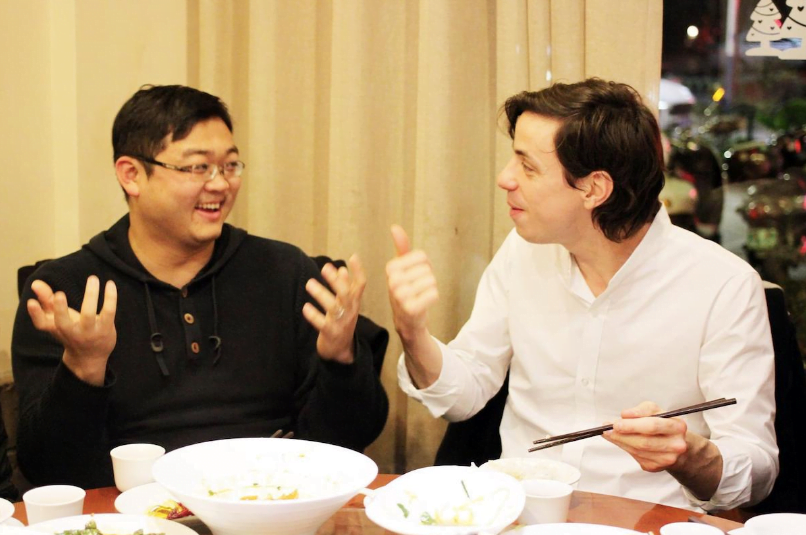Physical Address
304 North Cardinal St.
Dorchester Center, MA 02124
Physical Address
304 North Cardinal St.
Dorchester Center, MA 02124

Let’s Learn How to Say “Yes” in Chinese! If you have just started to learn the Chinese language, first, keep your grip tight on the basics. Learning how to say ‘YES in Chinese’ is the main thing you should learn first. But if you are searching for the literal meaning in English, you might be afraid to know that there is no direct translation.
But in Mandarin, there are so many ways to say ‘YES in Chinese’. We have a bunch of useful phrases and words translated into Chinese, do check it out.
One of the most used and simple words to say yes in Chinese is 是 (shì). It is the same way when we say “Yes, it is” or “Yes, I’m” in English. 是 (shì) is commonly used to show the confirmation of something.
For better understanding, consider this example,
你是美国人吗? = Nǐ shì Měiguórén ma? = Are you American?
是 = Shi = Yes, I am.
这是你的背包吗? = Zhè shì nǐ de bèibāo ma? = Is this your backpack?
是 = Shi = Yes, it is.
If you want to sound politer, you can use the variation of 是 (shì) which is 是的 (shìde).
It is used in the workplace, or if you want to say YES to your boss or any senior member position.
Let’s consider an example for better understanding,
你这周是不是要出差? = Nǐ zhè zhōu shìbùshì yào chūchāi? = Are you going on a business trip this week?
是的 = Shìde = Yes, that’s right.
对 (duì) is the word used in Chinese to say Correct or Right. It is just another way to say yes. If the question contains 对 (duì) then the answer should be 对 (duì) as well.
For instance,
这是你的手机,对吗? = Zhè shì nǐ de shǒujī, duì ma? = This is your cell phone, right?
对 = Duì = Yes, that’s right.
我觉得这朵花很漂亮 = Wǒ juédé zhè duǒ huā hěn piàoliang = I think this flower is really beautiful.
对 = Duì = Yes, I think so, too.

It is another way to say ‘Yes.’ It is used when agreeing with someone else’s opinion. The literal meaning of 没错 (méicuò) is “that’s right” or “that’s true.”
四川人很会吃辣 = Sìchuānrén hěn huì chī là = People from Sichuan really love spicy food.
没错 = Méicuò = Yes, that’s right.
You can use 好 (hǎo) if you want to say ‘YES.’ The literal meaning of 好 (hǎo) is “good.” It can use if you want to say ‘OKAY’, or ‘FINE’ in English.
Let’s consider an example for better understating:
我们现在去散步 = Wǒmen xiànzài qù sànbù = We’re going for a walk now.
Hǎo. = 好 = OK, sounds good.
But if you want to show excitement, then you will add the particle 呀 (ya).
For instance:
我们明天一起去看电影吧 = Wǒmen míngtiān yīqǐ qù kàn diànyǐng ba = Let’s go see a movie tomorrow.
好呀!= Hǎo ya! = OK!
What if you want to show the agreement? You will just add a participle hǎo le 好了.
你还没准备好吗?= Nǐ hái méi zhǔnbèi hǎo ma? = You’re still not ready?
好了,好了,我已经好了= Hǎo le, hǎo le, wǒ yǐjīng hǎo le. = OK, OK, I’m ready now.
If someone asks for permission or makes a request, you will use 行 (xíng) which means all right or okay. For instance:
帮我买一瓶水 = Bāng wǒ mǎi yī píng shuǐ. = Buy me a bottle of water, (please)行!= Xíng! = OK!
If you want to show the certainty, you can use 当然 (dāngrán) that means ‘of course.’ It is used to show your confidence in your answer.
Let’s consider an example:
你会游泳吗? = Nǐ huì yóuyǒng ma? = Do you know how to swim?
当然 = Dāngrán = Yes, of course.
If you are a beginner in learning Chinese, you should learn to mention questions and answers. It will make me more confident while speaking Chinese.

The literal meaning of 嗯(ǹg) is Yeah, right, and um. If you want to answer something positive, you can use 嗯(ǹg). Especially, when you are talking to your close family member or your friend.
I know examples can make your understanding clearer,
丽丽,你写完报告了吗?= Lìli, nǐ xiě wán bàogào le ma? = Lily, did you finish your report?
嗯,写完了 = Ǹg, xiě wán le. = Yes, finished.
咱们是明天上午十点的飞机吧?= Zánmen shì míngtiān shàngwǔ shídiǎn de fēijī ba? = Our flight is 10 a.m. tomorrow, right?
嗯 = Ǹg= Yeah.
Most of the Chinese repeat the same word to show their emotions and annoyed tone. They usually repeat the same word three times. Like 行行行 (xíng xíng xíng), these words can use to show the annoying behavior, or they are highly irritated with something.
For instance:
A: 哎呀,你得先倒油,然后放土豆,最后放鸡肉
Āiya, nǐ děi xiān dào yóu, ránhòu fàng tǔdòu, zuì hòu fàng jīròu
You have to pour oil first, then put potatoes, and put chicken at last
B: 行行行,我知道了,你去看电视吧
Xíng xíng xíng, wǒ zhīdào le, nǐ qù kàn diànshì ba!
Ok, ok, got it. Just watch TV!
Or if you highly agree with something, you can use the duì word thrice
A: 你说的是《花木兰》吗?
Nǐ shuō de shì 《Huā Mùlán》 ma?
Are you referring to the movie Mulan?
B: 对对对,就是那个电影
Duì duì duì, jiù shì nà ge diànyǐng
Exactly. Just that movie
Chinese natives use the word ‘no problem’ to say ‘YES.’ The Chinese translation of the no problem is 没问题 méi wèn tí.
For example:
A: 我来找王太太。请告诉她我来了
wǒ lái zhǎo Wáng Tàitai. qǐng gàosù tā wǒ lái le
I came to find Mrs. Wang. Please tell her I’m here.
B: 没问题。请稍等
méi wèntí. qǐng shāo děng.
No problem. Just a moment, please.
There is not just one to say Yes in the Chinese language, but hundreds of alternatives are there to say ‘YES.’ These are most commonly used words to say ‘YES,’ 要 (Yào), 有(Yǒu), 会(huì).
要!= Yào! = Yes!
会 = huì = Yes
是 = shì = to be
会 = huì = Yes
要!= Yào! = Yes!
| Hànzì | Pīnyīn | Definition |
|---|---|---|
| 是 | shì | to be (verb); yes (in certain contexts) |
| 是的 | shìde | yes, that’s right/correct |
| 对 | duì | yes, that’s right/correct |
| 没错 | méicuò | yes, that’s right/correct/true |
| 好 | hǎo | OK; fine |
| 好的 | hǎo de | OK; will do |
| 好呀 | hǎo ya | OK! (sounds excited/enthusiastic) |
| 好吧 | hǎo ba | OK (sounds reluctant) |
| 好了 | hǎole | yep! (positive); OK, OK (sounds exasperated) |
| 可以 | kěyǐ | yes, you can |
| 行 | xíng | OK; all right |
| 嗯 | èn | uh-huh; yeah |
| 没问题 | méiwèntí | no problem |
| 当然 | dāngrán | of course; certainly |
| 要 | yào | to want (verb); yes (in certain contexts) |
| 有 | yǒu | to have (verb); yes (in certain contexts) |
| 会 | huì | to be able to (verb); yes (in certain contexts) |
There are thousands of variations to say ‘Yes’ in the Chinese language. Learn to say ‘YES’ in the Chinese language is the most important thing for the Chinese language. Now you know many variations of saying ‘YES’ in the Chinese language but do not forget to practice. Because learning a new language depends upon your practice.
Remember one thing,
Practice makes a man perfect.
Try to use the different variations of Yes in your daily Chinese speaking practice. 是 (shì) is the most common variation whereas 对 (duì) use to show the positive agreement. And use 行 (xíng) to say ‘Alright’ or 嗯(ǹg) can use to say ‘Alright.’ Want to Intern in China or study the Chinese Language? Check out our programs
